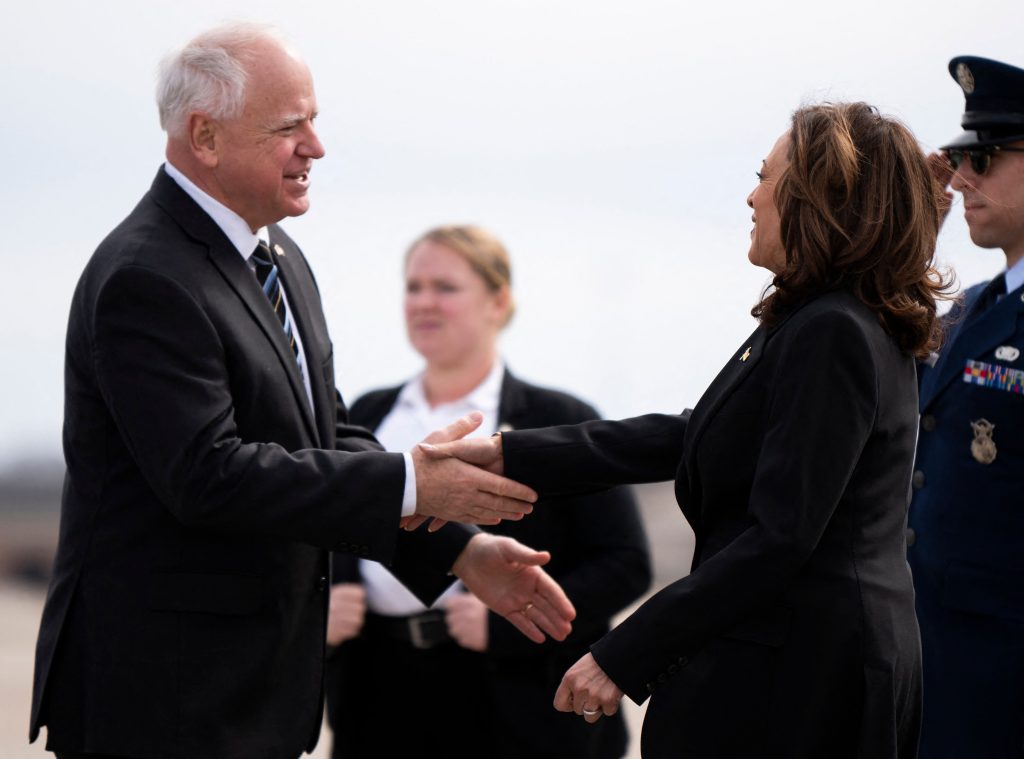
[ad_1]
This articleauthorDeng ShumingVisiting professor of Computer Science Department, Faculty of Engineering, Geography Department, Faculty of Social Sciences and School of Architecture, University of Hong Kong, and writes columns for Hong Kong Economic Journal“Kami Shingo”.
You may think that Tim Walz, the Democratic vice presidential candidate and governor of Minnesota, is a sudden figure, but he is no stranger to the field of geographic information. Walz calls himself a weirdo obsessed with geographic information systems (GIS), and he demonstrates his GIS philosophy no matter what position he holds.

Waltz grew up in a small town in the Midwest of the United States. When he was a child, he came across National Geographic Magazine by chance and began his pursuit of geographical knowledge. In the 1990s, he encountered GIS and quickly taught himself how to use it. He asserted that GIS “will change the way we teach and the world.”
In 1993, as a high school geography teacher, he guided his students to draw a contemporary world map, asking them to add various data that could lead to genocide, such as food shortages, droughts, and colonialism. As a result, the students found that Rwanda in Africa was the most likely place for problems to occur. Unfortunately, such a tragedy really happened in the country the following year, and the New York Times later interviewed the students who participated in the mapping.
After becoming governor, Waltz made more use of maps to implement targeted policies. One example is the replacement of lead water pipes. In recent years, many places in the United States have found lead in drinking water. It is estimated that more than 100,000 water pipes in Minnesota need to be replaced, and the goal is to replace all the pipes involved free of charge within 10 years. The state Department of Health and the University of Minnesota have developed an interactive map that allows residents to enter their addresses to see whether they need to replace water pipes and the priority of the project. Waltz believes that maps not only strengthen residents’ trust in the government, but also highly transparent information promotes supervision and improves the efficiency of the state government.
At the same time, maps can visualize abstract policies. Taking the COVID-19 pandemic as an example, Waltz showed the transmission path on a map and assigned the locations of vaccination centers to persuade residents in areas with high case numbers to get vaccinated as soon as possible. As a result, the state became one of the places with the highest vaccination rate and the lowest mortality rate in the United States.

In addition, he has the “One Minnesota” initiative, hoping to use maps to break down barriers between institutions and integrate data from different sources to address issues such as child poverty, climate and economy. GIS can be said to be an important element of his governance philosophy. In recognition of GIS’s contribution to Minnesota, he designated November 15, 2023 as “Geographic Information System Day” last year.
Of course, as a powerful communication tool, maps can be used to mislead others or even manipulate public opinion if they fall into the hands of people with bad intentions. Despite this, Waltz always believed that maps can bring about a better change in the world. I am also devoted to maps, and I am glad that we are in the same boat.
More articles by Deng Shuming:
Support EJ Tech


If you want to submit articles, report information, issue press releases or interview notices,Click here to contact us.
//
[ad_2]
Source link

